Latest Articles
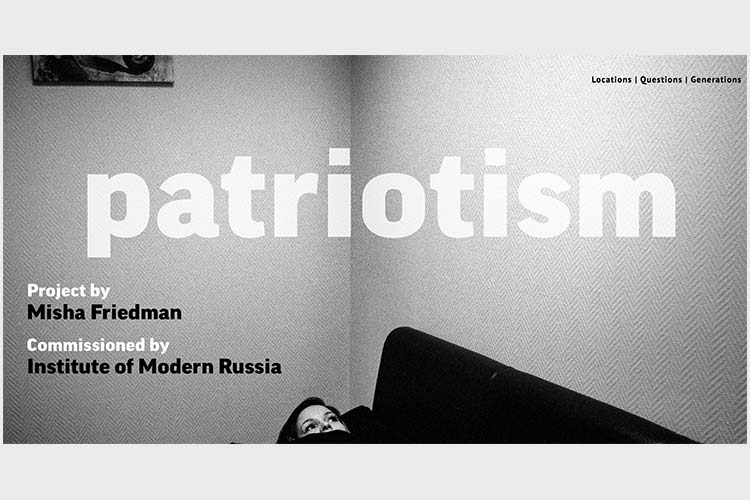
- Details
- Projects Archive
The Faces of Russian Patriotism
- Details
The topic of patriotism has become increasingly popular in Russia, especially given the country’s sensitive political environment, in which the Russian authorities actively exploit and propagate patriotic themes in order to fulfill the goals of the regime. In this context, research on patriotism and its manifestations in modern Russian society is both relevant and timely.
To examine how the Russian public understands patriotism today, the Institute of Modern Russia launched a project entitled “Faces of Russian Patriotism,” which is dedicated to studying this phenomenon.
As part of this project, IMR developed a research paper entitled “What’s in a Name? Understanding Russian Patriotism.” A portion of the data used in this paper was collected in collaboration with the Levada Center, Russia’s leading polling organization. An omnibus (nationwide) survey on Russian patriotism was conducted in February 2014. Preliminary results were presented at a panel organized by IMR and entitled “The Meaning of Patriotism in Post-Soviet Russia” as part of the World Convention of the Association for the Study of Nationalities (ASN), held at Columbia University.
Another part of this project takes a more intimate and artistic look at Russian patriotism. In 2013, IMR commissioned New York photographer Misha Friedman to conduct a visual exploration and cultural study of the concept of patriotism in contemporary Russia. Through photographs of and interviews with people from all walks of life throughout Russia, ranging from pensioners and paratroopers to students and businessmen, Friedman seeks to explore the random collection of ideas that compose the Russian conception of patriotism today. Portraits, interviews, and audio clips are presented on an interactive website (patriotism.imrussia.org) that was launched during the summer of 2014.
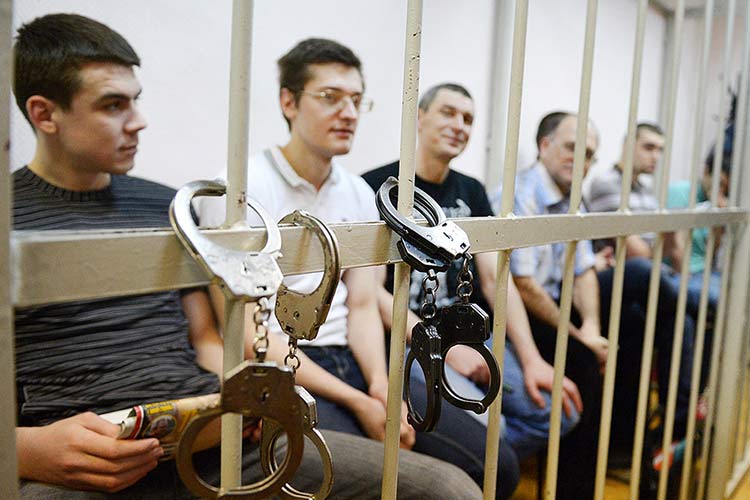
- Details
- Projects Archive
Russia’s Political Prisoners
- Details
Russia’s Political Prisoners is the project dedicated to those prisoners in Russian jails, camps, and pretrial detention centers who were deprived of their freedom for political reasons.
Despite the fact that current Russian authorities deny that political prosecution occurs in the country, the majority of human rights activists, both in Russia and abroad, strongly disagree. According to the Memorial Anti-Discrimination Center in Moscow, as of August 7, 2014, 46 people in Russia were recognized as political prisoners. Supporting them and getting them released is a top priority for civic and human rights activists.
Mikhail Khodorkovsky, Russia’s best-known political prisoner, said in December 2013, two days after his release: “You should not see me as a symbol that there are no political prisoners left in Russia. I am asking you to see me as a symbol that the efforts of civil society may lead to the release even of those people whose release was not expected by anyone. We must continue to do all we can to make sure that there are no more political prisoners in Russia or, for that matter, in any other country. I will do everything in my power to work towards this goal.”
IMR believes that raising awareness about those individuals who have been prosecuted and found guilty for political reasons is a crucial element of the campaign for their release. Based on this belief, we have launched a series of articles portraying each of Russia’s political prisoners.
The recognition of a person as a political prisoner signifies neither agreement with the views of this person, nor the approval of his or her statements or actions on the part of the Institute of Modern Russia.
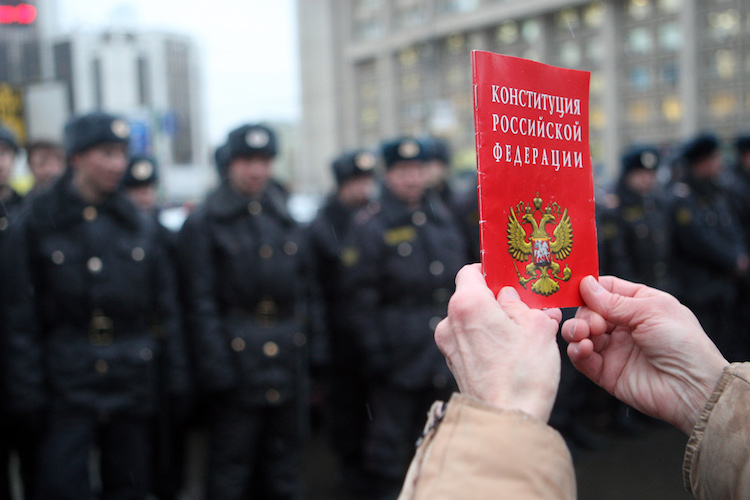
- Details
- Projects Archive
Post-Putin Russia: Plan of Reforms
- Details
One of the claims of the current regime in Russia is that there is no alternative to Vladimir Putin as a leader or to his regime as a political system accepted by the majority of the Russian people. Deputy chief of staff Vyacheslav Volodin famously encapsulated this vein of thinking when he said, “There is no Russia today if there is no Putin.”
At IMR, we believe that this thinking is wrong. An alternative to the regime does exist, but over the last decade, the regime has managed to marginalize it by destroying and vilifying the democratic opposition, silencing dissenting voices, and repressing the protest movement. Still, the opposition is often criticized for not offering a viable and comprehensive alternative plan for the country’s future—an agenda that would effectively counter the Kremlin’s narrative.
The Institute of Modern Russia has decided to address this issue. This year we’ve launched an initiative that would essentially change the agenda by developing a reform program for post-Putin Russia to facilitate democratic transition and help the country become a prosperous state based on the rule of law. As a first step within this initiative, a group of Russia’s leading constitutional law experts prepared the report titled “Constitutional Crisis in Russia and How to Resolve It,” a profound work that dissects one of the country’s acutest problems—the erosion of the democratic essence of the Russian Constitution—and provides possible solutions.
The second report of the series, titled “Russia’s Healthcare System: Current State of Affairs and the Need for Reforms,” outlines the dire situation in the country’s healthcare and offers policy solutions that can facilitate the much needed change.
The latest report focuses on Russia's economy and is titled “Demonopolization of the Economy as an Axis of Russia’s Future Reforms.” It provides a profound analysis of the fundamental problems facing the country's economy and offers a blueprint of potential reforms.
In the future, we plan to address other grave issues, such as reforming Russia’s judiciary, law-enforcement, military, and pension system.
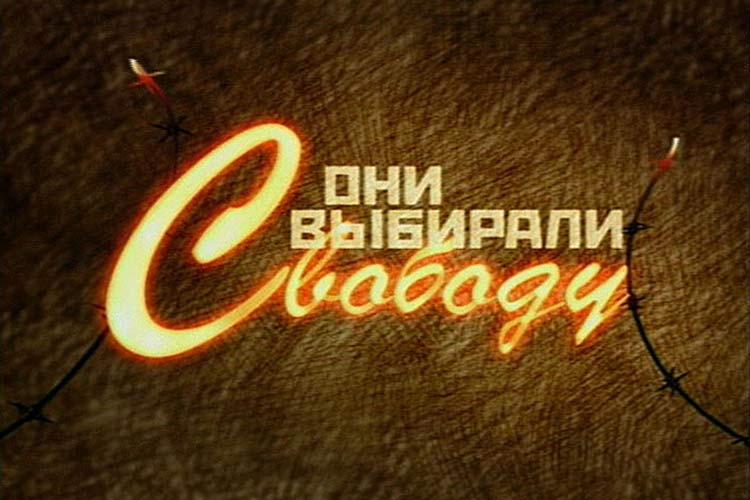
- Details
- Projects Archive
They Chose Freedom: The Story of Soviet Dissidents
- Details
They Chose Freedom, a four-part documentary film written and produced by Russian historian and television journalist Vladimir V. Kara-Murza, tells the story of the dissident movement in the USSR from its emergence in the 1950s until the collapse of the Soviet dictatorship in 1991. Public readings of banned poetry in Mayakovsky Square, the development of samizdat (underground publications), the 1965 and 1968 opposition demonstrations in Moscow, and the harsh repressions unleashed against dissenters by the Communist regime—including forced psychiatric “treatment,” prison camps, and exile—are chronicled in this documentary.
The film is narrated primarily through interviews with prominent Russian dissidents: Elena Bonner, Vladimir Bukovsky, Vladimir Dremlyuga, Viktor Fainberg, Natalia Gorbanevskaya, Sergei Kovalev, Naum Korzhavin, Eduard Kuznetsov, Pavel Litvinov, Yuri Orlov, Alexander Podrabinek, Anatoly (Natan) Sharansky, and Alexander Yesenin-Volpin. In the final episode, these individuals offer their thoughts on the current situation in Russia under Vladimir Putin and share their expectations for the future.
Public screenings of They Chose Freedom (in Russian) have been held in Moscow, Yekaterinburg, and Cambridge, Massachusetts.
In 2013, for the 45th anniversary of the 1968 Red Square demonstration against the Soviet invasion of Czechoslovakia, the Institute of Modern Russia sponsored the translation and English-language production of They Chose Freedom as part of its commitment to preserving the legacy of those who have dedicated their lives to the struggle for freedom, human rights, and the rule of law in Russia.
The film screenings in English have taken place in New York, London, and Washington, DC. Further screenings are planned for the University of Wisconsin–Madison, Budapest, and Canada.
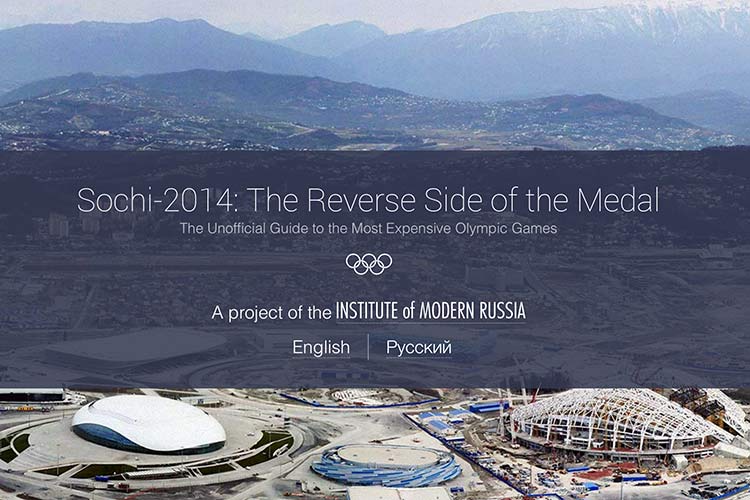
- Details
- Projects Archive
Sochi 2014 Olympic Games
- Details
On January 30th, the Institute of Modern Russia presented a mobile website entitled “Sochi 2014: The Reverse Side of the Medal,” (sochi2014.imrussia.org) dedicated to the violations that plagued the preparations for the Winter Olympic Games in Russia.
From the moment that Sochi won the Olympic bid in 2007, concerns about the development of this area, spending procedures, and project implementation grew exponentially. It is a known fact that Vladimir Putin considers the Sochi Olympic Games to be the crown jewel of his achievements as a national leader and a strong international player. In a sense, the Sochi Games are Putin’s personal “vanity fair.”
It came as no surprise that billions of dollars were allocated from the state budget to implement this project. The official cost of the Games was formally announced as about $6.7 billion, but various independent sources have indicated that in reality, expenses amounted to $50 billion. And it is no surprise that most of the excessive costs were caused by the mind-bogglingly corrupt practices employed by Putin’s closest friends and loyalists.
Six months before the Games, the Institute of Modern Russia embarked on a research project to study the key issues of the Olympic preparations, such as excessive spending, deadline delays, corrupt practices, and human rights violations. A list of 26 sites associated with Olympic construction was compiled. According to IMR, these sites deserve special attention because of the scale of corruption and the acuteness of other violations related to them. In an effort to raise awareness on these abuses, IMR decided to present the collected data in an unconventional way—as an interactive online guide.
The results of the research are summarized and presented in the form of a mobile website entitled “Sochi 2014: The Reverse Side of the Medal,” which provides an opportunity to explore the reality of the most expensive Olympic Games in history. This site is available in both English and Russian.

- Details
- Projects Archive
Policy Analysis and Research
- Details
This project aims to inform and educate policymakers, media, and think tanks on relevant issues in Russian politics by producing in-depth analysis, research papers, and policy recommendations.
As part of this project, IMR and the Legatum Institute (London) jointly commissioned a series of studies to analyze the challenges of Russia’s transition from the former Soviet Union. The first paper of the series was a study of Russia’s postmodern dictatorship, and subsequent works were dedicated to corruption issues in Ukraine, Georgia, and Moldova. IMR worked with its sister publication The Interpreter to produce an 88-page report titled “An Invasion by Any Other Name: The Kremlin’s Dirty War in Ukraine,” the most comprehensive compilation of evidence on the war in Ukraine to date.
One of our most acclaimed reports is “The Menace of Unreality: How the Kremlin Weaponizes Information, Culture, and Money,” a study of the Kremlin’s disinformation war and propaganda efforts. Authored by two prominent journalists—Michael Weiss and Peter Pomerantsev—it’s been extensively cited by the media, politicians, scholars, etc.
IMR has also been collaborating with the Political Capital Policy Research and Consulting Institute (Hungary) on a study identifying the relevant connections between the Kremlin and Europe’s far right and far left forces. And, as part of the project titled “Faces of Patriotism,” we have partnered with the Levada-Center, a Moscow-based independent pollster, to conduct a number of public opinion surveys that were included in the recent paper on Russian understandings of patriotism.
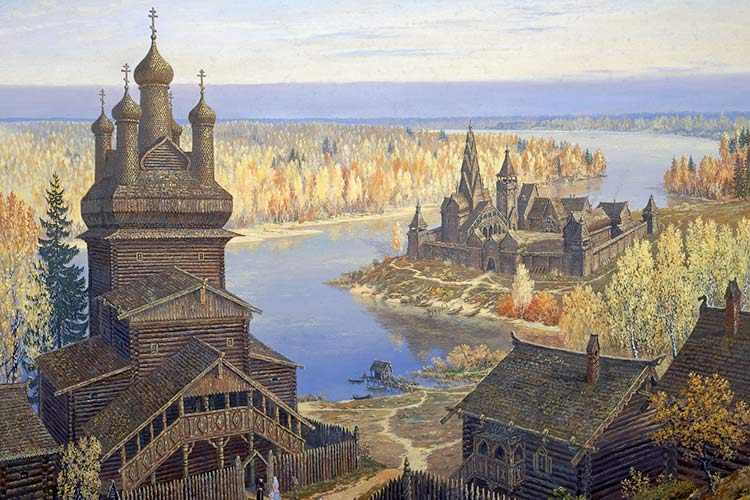
- Details
- Projects Archive
The Innovative Approach to History Textbook
- Details
The complexities of facing Russia’s future require that we adopt new approaches to interpreting its past. Today, the return of neo-Stalinism and the conservative Soviet philosophy of history is visible in the Russian educational system and is manifested daily in both the country’s policies and the public consciousness. Together, the two strains of thought compose a powerful ideological machine that was formed over the course of 150 years, stemming from the writings of Nikolai Karamzin and developing through the introduction of Stalinist Marxism. At the heart of this ideology today is the notion that a sovereign ruler is necessary for a nation’s success. Subverting the dominant paradigm of Russian history remains a challenge.
Nevertheless, innovative approaches can be found in the New Imperial History project, an initiative created by a group of leading Russian historians. This project, sponsored by IMR, explores the myths of outdated historiography, recognizing the multiplicity of the past with a view to the pluralism of the future.
The project challenges the prevailing approach to Russian history and provides a realistic avenue for fostering change in Russian society. This collaboration of prominent Russian historians presents Russian history as a foundation for critical dialogue on complex situations, alternative historical developments, and factors that have contributed to various political, economic, and cultural outcomes.
In its final form, the collective project will become a textbook for college students, both Russian and English, featuring contemporary historical essays and discussions of the post-Soviet space.
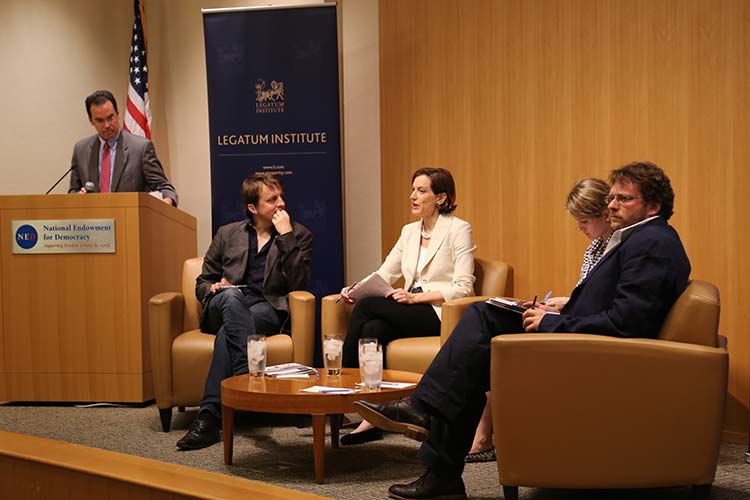
- Details
- Projects Archive
Public Outreach and Dialogue
- Details
Contributing to the public dialogue is an important part of our work. Speaking directly to policymakers, political analysts, the media, and the general public helps generate ideas and stimulate debate on a number of crucial issues regarding Russia.
As part of this project, IMR organizes conferences, roundtables, public talks, and presentations in the United States and Europe. Since 2011, we have collaborated with numerous NGOs, think tanks, and academic institutions, including Freedom House, the National Endowment for Democracy, the Atlantic Council, the Legatum Institute, the Harriman Institute at Columbia University, and many more.
IMR has also partnered with some of these organizations to hold conferences on Capitol Hill and in European Parliament with a goal of bringing the West’s attention to human rights violations and political repressions in Putin’s Russia. Past speakers have included Sen. Ben Cardin; Rep. Jim McGovern; European Parliament members Guy Verhofstadt, Kristiina Ojuland, and Edward McMillan-Scott; Freedom House president at the time David Kramer; Lithuanian ambassador to the United States Žygimantas Pavilionis; Lantos Foundation president Katrina Lantos; Russian politicians Mikhail Kasyanov, leader of the People’s Republic Party, and Dmitry Gudkov, a State Duma member; and the slain opposition leader Boris Nemtsov.
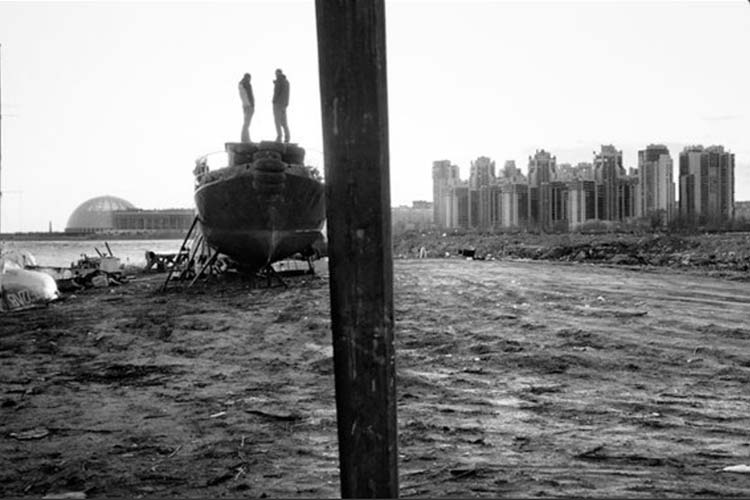
- Details
- Projects Archive
Anticorruption Campaign
- Details
Corruption is without a doubt the most topical issue in Russia today, with destructive effects on the national economy and public institutions. The National Anticorruption Committee estimates the corruption market in Russia at around $300 billion a year, while human rights activists claim that corruption accounts for up to 50 percent of the country’s GDP. Transparency International ranks Russia 122nd of 177 countries in its 2013 Corruption Perceptions Index.
IMR seeks not only to expose the scale of the corruption, but also to make people think of the consequences of corruption practices. Most Russians have grown to believe that corruption is an inevitable evil, and even those who recognize its absurdity nonetheless cannot imagine their lives without it.
As part of its anticorruption efforts, IMR commissioned Photo 51: Is Corruption in Russia’s DNA? This project, which examines the deep, underlying roots of corruption in Russian society, consists of a series of photographs taken by Misha Friedman, a renowned New York photographer, in various parts of Russia. “Photo 51” was a nickname for the first X-ray diffraction image taken in 1952 that provided a breakthrough for researchers trying to model the structure of DNA. In today’s Russia, corruption has penetrated to the very core of society and, metaphorically speaking, has become a part of the country’s DNA.
In March 2013, the Photo 51 exhibition premiered in New York at the 287 Spring Gallery. In October, it was showcased at the Tallinn Portrait Gallery in Estonia as part of the Prison and Freedom exhibit dedicated to Mikhail Khodorkovsky. After that, the project was featured at the Mediaudar Festival in Moscow. Currently, IMR is working with the University of Michigan to showcase Misha Friedman’s exhibit in Ann Arbor’s Work Gallery in May 2015.
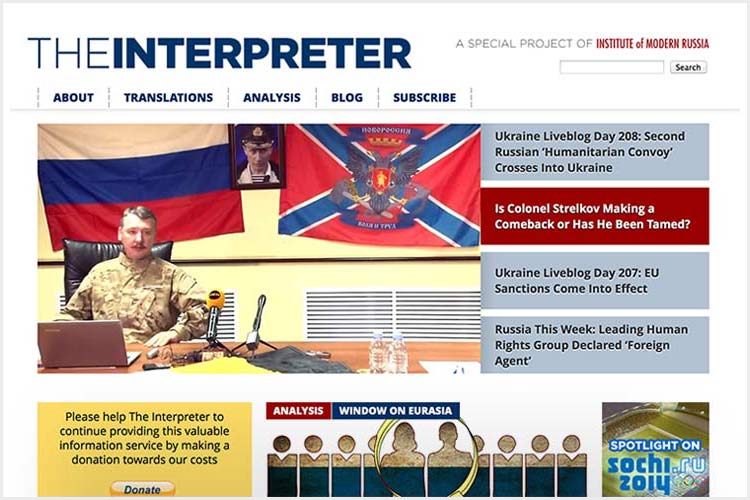
- Details
- Projects Archive
The Interpreter
- Details
The Interpreter (interpretermag.com) was launched on May 1, 2013, by IMR and the Herzen Foundation. The project was immediately hailed as both well timed and long overdue. In its first year, The Interpreter has been read by hundreds of thousands of people from all over world—including journalists, human rights groups and policymakers—and its content has been cited by The New York Times, The Lost Angeles Times, The Guardian (where its work is syndicated as part of the Post-Soviet States network), Business Insider, The Atlantic, The Diplomat, Index on Censorship, Journal of Democracy, and Foreign Policy.
Since February 2014, The Interpreter has become an international “must-read” for breaking news on Ukraine; its reporting and analysis has been solicited by presidents, ambassadors, NATO and the U.S. State Department. Journalists have routinely turned to it as an invaluable resource for understanding a highly complex conflict. More than anything, The Interpreter has been credited with debunking Kremlin propaganda and disinformation about the Euromaidan protest movement; establishing Russia’s military operations in Crimea, and also breaking news pertaining to Russia’s ongoing yet still-denied warfare in east Ukraine.
Starting January 2016, The Interpreter is published by Radio Free Europe/Radio Liberty.

